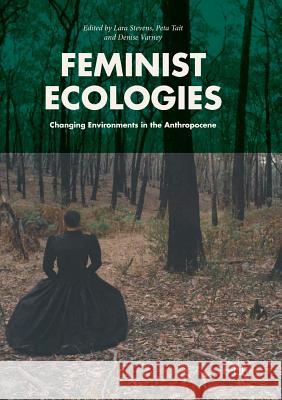Feminist Ecologies: Changing Environments in the Anthropocene » książka
topmenu
Feminist Ecologies: Changing Environments in the Anthropocene
ISBN-13: 9783319877792 / Angielski / Miękka / 2018 / 271 str.
Kategorie:
Kategorie BISAC:
Wydawca:
Palgrave MacMillan
Język:
Angielski
ISBN-13:
9783319877792
Rok wydania:
2018
Wydanie:
Softcover Repri
Ilość stron:
271
Waga:
0.34 kg
Wymiary:
21.01 x 14.81 x 1.52
Oprawa:
Miękka
Wolumenów:
01
Dodatkowe informacje:
Wydanie ilustrowane











